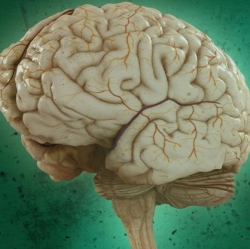
The work sheds light on potential genetic and environmental factors that may occur early in life, causing lifelong consequences. They publish their findings in Proceedings of the National Academy of Sciences. The team focused on grey matter in the brain, a network of nerve cells that coordinate information from different senses.
This area does not develop until late adolescence or early adulthood, they say, and it is linked with both intellectual capacity and long-term memory,mental abilities that become impaired in people with schizophrenia or Alzheimer’s disease. A theory from the 1880s – known as the "retrogenesis" theory of brain change – proposed that brain ability declines in reverse order to how it develops in humans and in evolutionary terms (for example, evolving from chimpanzees to humans).
Following these lines, the researchers used a "data-driven" approach to study age-related changes. So, instead of looking for a certain pattern in brain changes in a specific brain location, the team analyzed magnetic resonance imaging (MRI) scans of 484 people – ranging in age from 8-85 years – to see what patterns were revealed.
